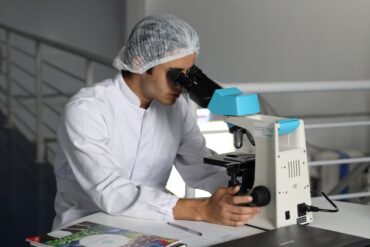
What is the role of your defense mechanisms in carcinogenesis?
It has been proven that a persistent HPV infection caused by high-risk viral types over a long period of time increases the chances for cancer in the future.
What factors contribute to the persistence of an HPV infection and carcinogenesis later? The deficient functioning of our immune system and the tumor-suppressing mechanisms we have (if they don’t work properly).
The poor functioning of our immune system, whatever its cause, is a very important parameter. We know that AIDS patients are at a higher risk due to the deficient functioning of their immune system. Also, as we know, patients taking immunosuppressant medication for any reason such as organ transplant patients, chronic users of cortisone and other immunosuppressive drugs due to rheumatism or other chronic diseases) face a higher risk.
High-risk HPVs drive abnormal cell proliferation, as a consequence of genetic alterations, and induce mutations.
Once HPV enters an epithelial cell, the virus begins to make the proteins it encodes. Two of the proteins made by high-risk HPVs (E6 and E7) interfere with cell functions that normally prevent excessive growth, helping the mutated cells to grow in an uncontrolled manner and to avoid cell death.
Many times the HPV infected cells are recognized by the immune system and eliminated. Sometimes, however, these infected cells are not destroyed, resulting in a persistent infection. As the persistently infected cells continue to multiply, they may develop mutations in cellular genes that promote even more abnormal cell growth, leading to the formation of an area of precancerous cells and, ultimately, a cancerous tumor.
There are also genetic factors (hereditary) that determine how well these mechanisms work in each one of us. We have not yet managed to uncover many details on this subject. These two parameters must, of course, be taken into consideration, i.e. age (the older an individual is, the greater the risk for carcinogenesis) and the family history of cancer.
What can you do to improve your immune system?
In order to improve your immune system, you should:
- avoid stress
- get adequate sleep
- quit smoking
- treat other infections and
- eat a healthy diet (with green vegetables and plenty of fruit – to get vitamins A, B, E, C. Foods rich in Omega3 fats and the consumption of green tea are also recommended).
Why is it good not to smoke?
In addition to its other harmful effects on our health, smoking weakens our defense mechanisms against HPV.
It reduces the action of certain cells of our immune system (such as the Langerhans cells) that are responsible for the suppression of the virus, at a local level in the tissues of the lower genital tract.
It has also been proven that the cancer-causing substances of tobacco (such as benzopyrene, cotinine, phenols, etc.) are detected in the mucus of a smoker’s cervix (in a concentration many times higher than the blood) and may act as contributing factors in carcinogenesis.
It appears that smoking has an especially aggravating effect on the suppression of HPV activity by the woman’s body and on how it fights carcinogenesis.
As has been proven by numerous medical studies (published since 1990), smokers are at a much higher risk for recurrences of genital warts as well as precancerous lesions.





